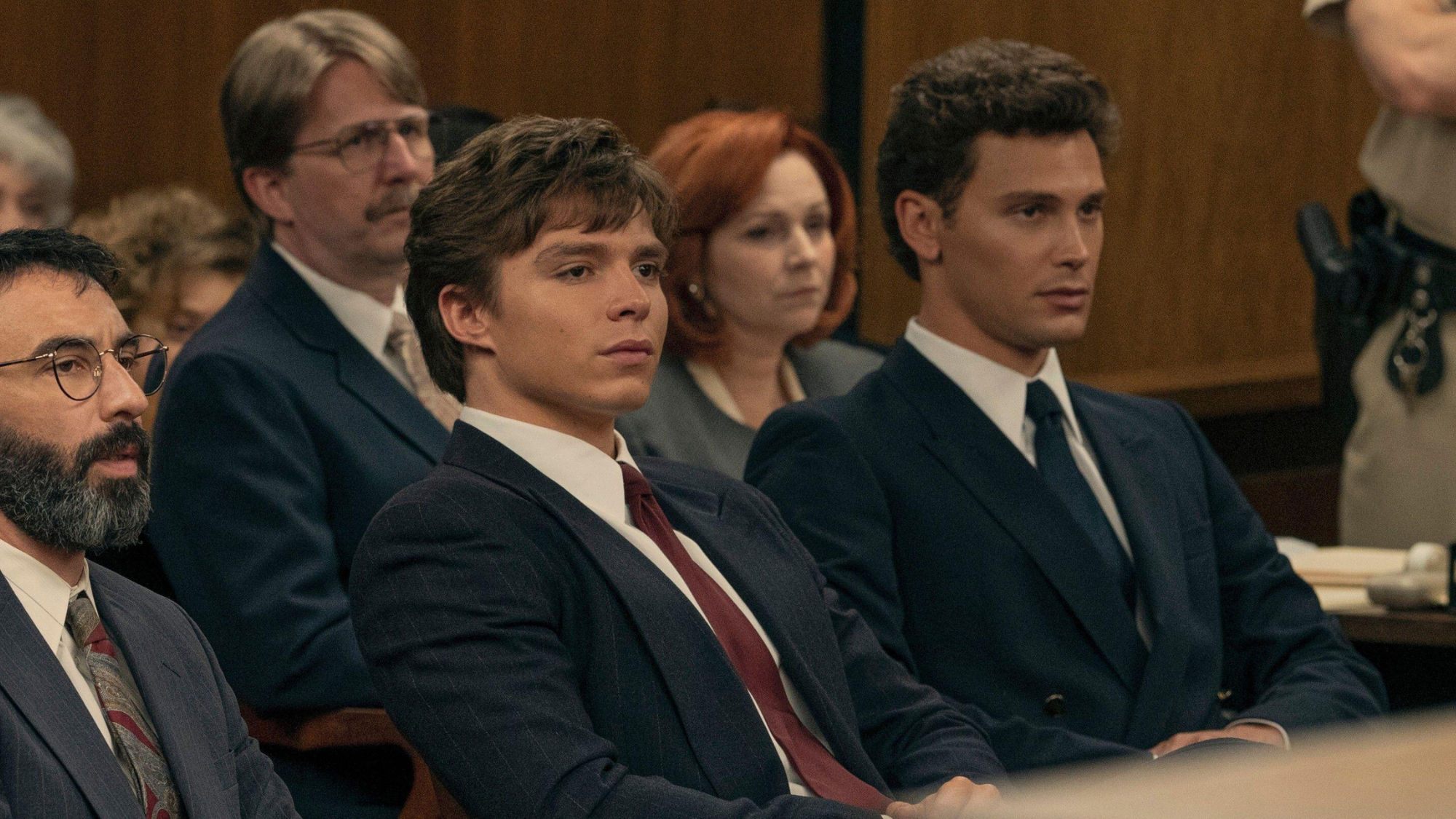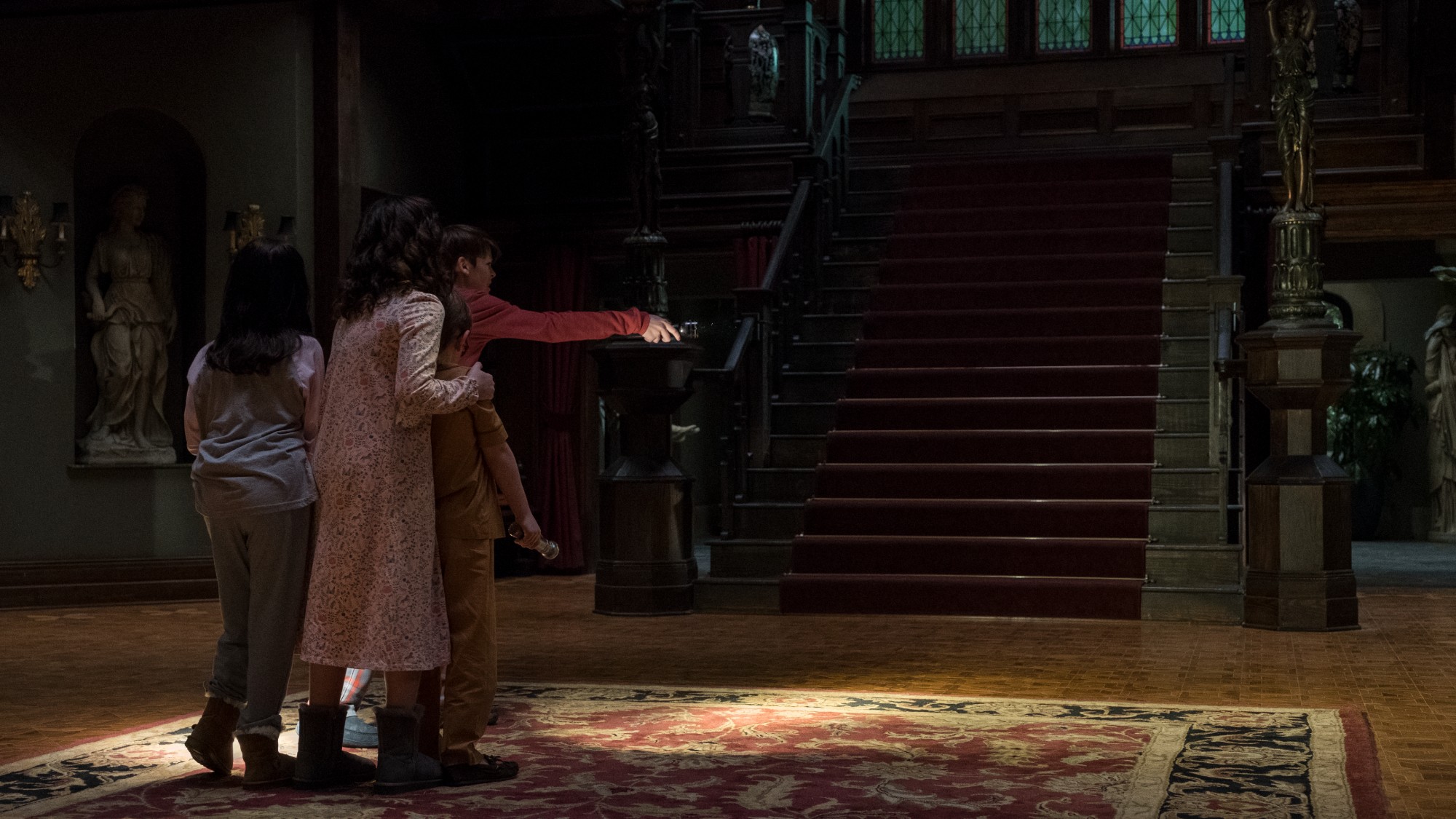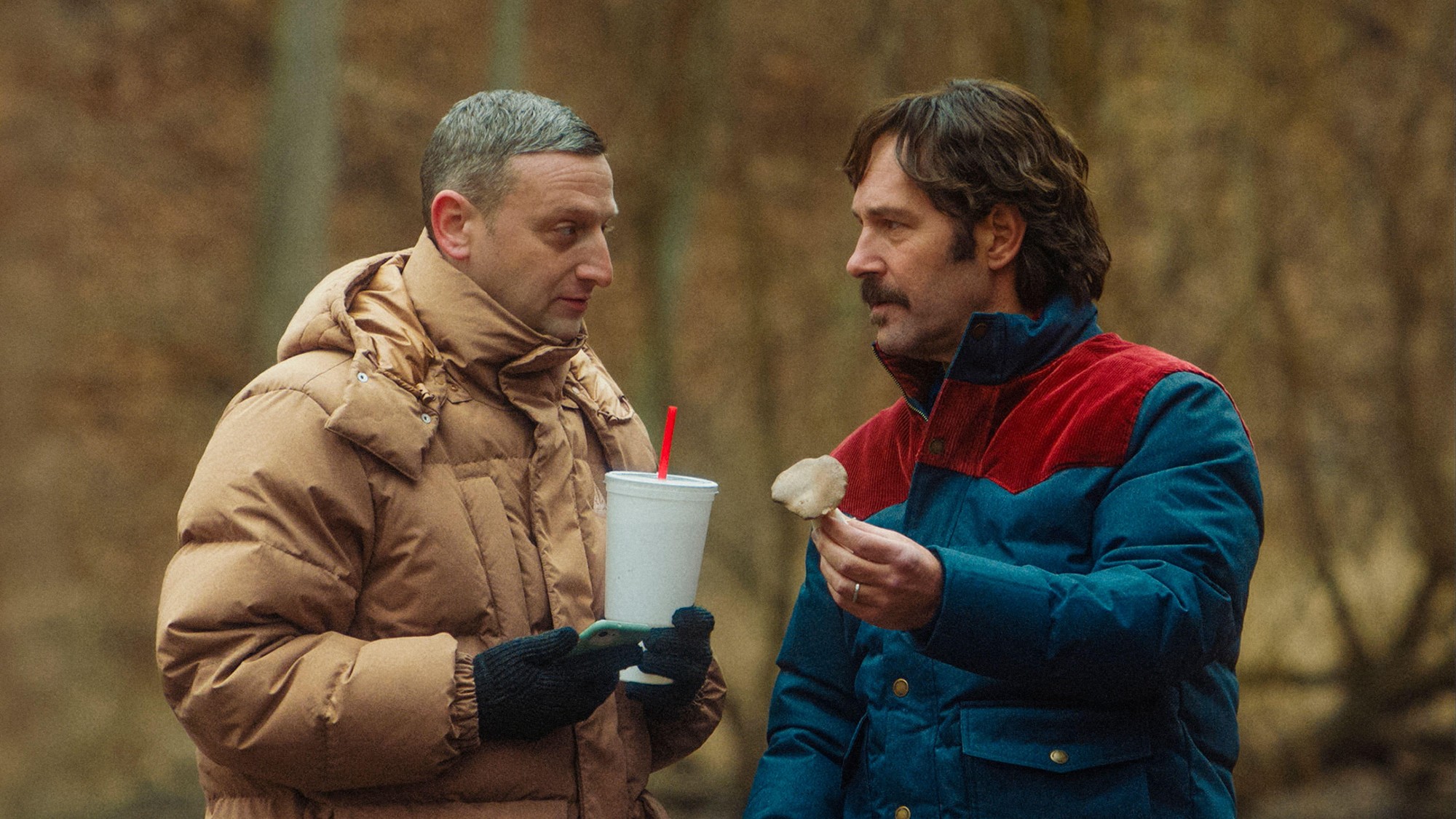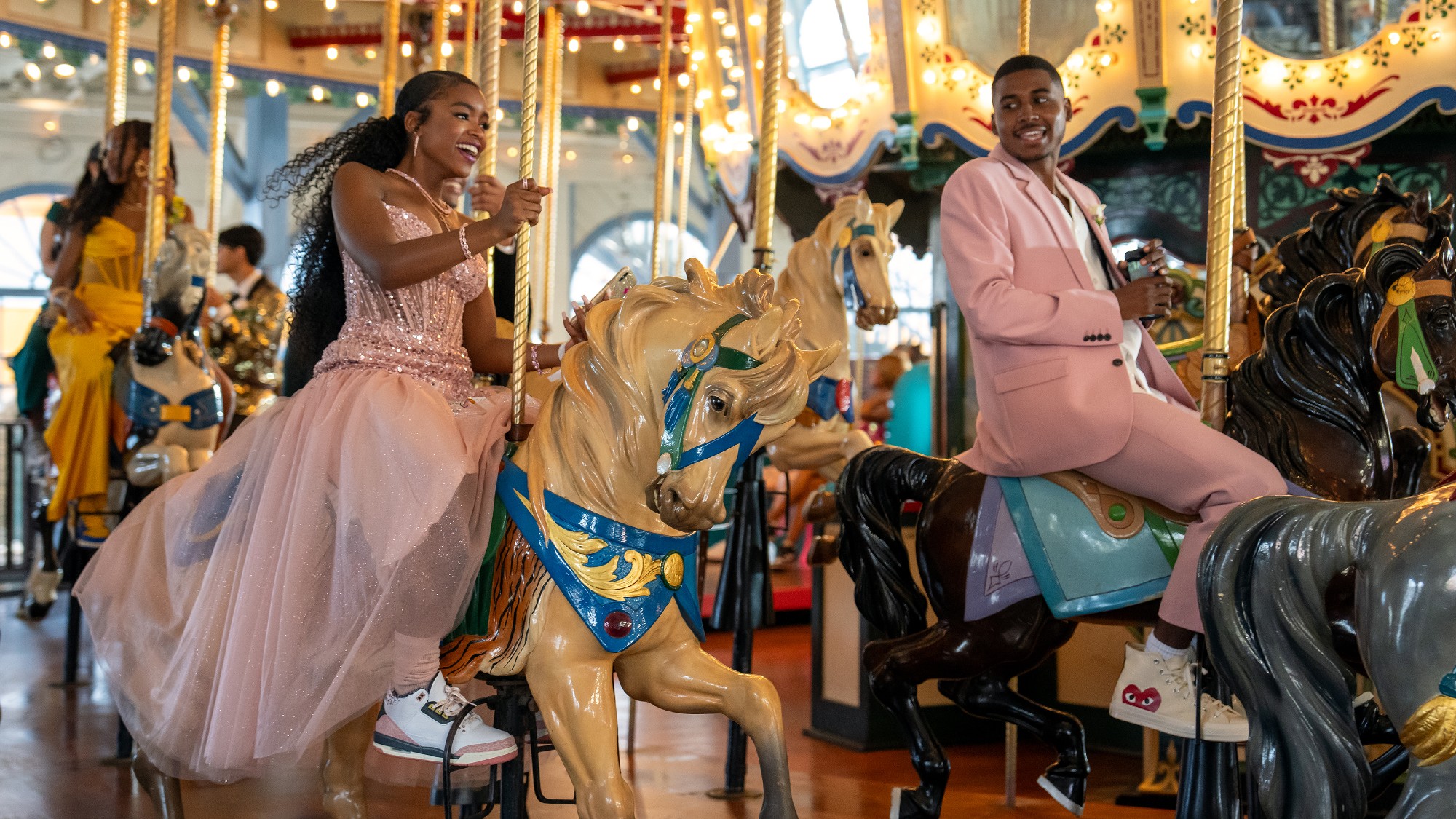Monsters: why is the Menendez brothers Netflix hit so controversial?
Ryan Murphy’s latest true-crime series recounts infamous 1989 Beverly Hills murders, but some critics say his retelling takes too many liberties with the truth

A free daily email with the biggest news stories of the day – and the best features from TheWeek.com
You are now subscribed
Your newsletter sign-up was successful
"Death, sex, privilege, lies" – the 1989 murder of Kitty and Jose Menendez by their sons, Lyle and Erik, "has it all", said Ed Power in The Telegraph. "At least, it does if you are Ryan Murphy."
Following Murphy's similarly provocative Netflix series about serial killer Jeffrey Dahmer, the "American Horror Story" showrunner has turned his hand to another grisly crime, this time revisiting the story of Lyle and Erik Menendez. They are serving life sentences without parole for murdering their parents at their Beverly Hills home.
While the brothers claimed they carried out the crime in response to years of horrific sexual abuse at the hands of their father, prosecutors argued the double murder was motivated by an enormous inheritance.
The Week
Escape your echo chamber. Get the facts behind the news, plus analysis from multiple perspectives.

Sign up for The Week's Free Newsletters
From our morning news briefing to a weekly Good News Newsletter, get the best of The Week delivered directly to your inbox.
From our morning news briefing to a weekly Good News Newsletter, get the best of The Week delivered directly to your inbox.
'Immensely slick and breathtakingly crass'
"Flashy, exploitative and propulsive," "Monsters: The Lyle and Erik Menendez Story" is "peak Murphy", said Power. Like Dahmer, the nine-part series "struggles against the temptation to glamorise its subjects" and is at once "immensely slick and breathtakingly crass".
Cooper Koch and Nicholas Alexander Chavez try their hardest to "bring depth" to the titular "cartoon villains of American true crime", but a "haze of vulgarity" lingers over the show. Murphy even has the Vanity Fair crime writer Dominick Dunne (Nathan Lane) speculate about whether the brothers' relationship was incestuous – the "perfect excuse to crowbar in a scene of them canoodling in the shower together".
Trying to figure out what tone the show is trying to strike is "headache-inducing", said Imogen West-Knights on Slate. One moment, it leans into "Tarantino-esque, aestheticized violence", the next it attempts a sensitive portrayal of the "devastating" impact of childhood sexual abuse. "It is a doomed enterprise."
The show's attempts to explore multiple points of view amounts to "endless back-and-forth rug-pulling", said Jesse Hassenger in The Guardian. It's meant to come across as "multifaceted" but instead becomes an "exhausting" flip-flopping between two "overplayed notes": the brothers as traumatised abuse victims, and the brothers as "possibly sociopathic connivers".
A free daily email with the biggest news stories of the day – and the best features from TheWeek.com
Writing from prison, Erik Menendez himself has criticised the "horrible and blatant lies rampant in the show" and called the portrayals of himself and his brother "vile and appalling".
'Moral questionableness be damned'
Of course, Murphy has been "doing the rounds justifying the show's existence", said West-Knights, "making copious noises about handling things sensitively". Doubling down, he told Variety that "Monsters" is "the best thing that has happened to the Menendez brothers in 30 years. They are now being talked about by millions of people all over the world." Indeed, the show scooped 12.3 million views in its first weekend of release and shot straight to the top of Netflix's streaming chart.
Sure, Murphy knows how to "serve up a compelling binge-watch" and the show "clips along", said Power, but ultimately it's "competently put-together hokum made in the worst possible taste".
"Tastelessness and moral questionableness be damned," said West-Knights. With Murphy's track record, "I guess we'll do this all again in two years' time".
Irenie Forshaw is the features editor at The Week, covering arts, culture and travel. She began her career in journalism at Leeds University, where she wrote for the student newspaper, The Gryphon, before working at The Guardian and The New Statesman Group. Irenie then became a senior writer at Elite Traveler, where she oversaw The Experts column.
-
 Mixing up mixology: The year ahead in cocktail and bar trends
Mixing up mixology: The year ahead in cocktail and bar trendsthe week recommends It’s hojicha vs. matcha, plus a whole lot more
-
 Labor secretary’s husband barred amid assault probe
Labor secretary’s husband barred amid assault probeSpeed Read Shawn DeRemer, the husband of Labor Secretary Lori Chavez-DeRemer, has been accused of sexual assault
-
 Trump touts pledges at 1st Board of Peace meeting
Trump touts pledges at 1st Board of Peace meetingSpeed Read At the inaugural meeting, the president announced nine countries have agreed to pledge a combined $7 billion for a Gaza relief package
-
 February TV brings the debut of an adult animated series, the latest batch of ‘Bridgerton’ and the return of an aughts sitcom
February TV brings the debut of an adult animated series, the latest batch of ‘Bridgerton’ and the return of an aughts sitcomthe week recommends An animated lawyers show, a post-apocalyptic family reunion and a revival of a hospital comedy classic
-
 Nepal’s fake mountain rescue fraud
Nepal’s fake mountain rescue fraudUnder The Radar Arrests made in alleged $20 million insurance racket
-
 The 8 best hospital dramas of all time
The 8 best hospital dramas of all timethe week recommends From wartime period pieces to of-the-moment procedurals, audiences never tire of watching doctors and nurses do their lifesaving thing
-
 The 8 best horror series of all time
The 8 best horror series of all timethe week recommends Lost voyages, haunted houses and the best scares in television history
-
 Is a social media ban for teens the answer?
Is a social media ban for teens the answer?Talking Point Australia is leading the charge in banning social media for people under 16 — but there is lingering doubt as to the efficacy of such laws
-
 The 8 best comedy movies of 2025
The 8 best comedy movies of 2025the week recommends Filmmakers find laughs in both familiar set-ups and hopeless places
-
 The best drama TV series of 2025
The best drama TV series of 2025the week recommends From the horrors of death to the hive-mind apocalypse, TV is far from out of great ideas
-
 The 8 best drama movies of 2025
The 8 best drama movies of 2025the week recommends Nuclear war, dictatorship and the summer of 2020 highlight the most important and memorable films of 2025